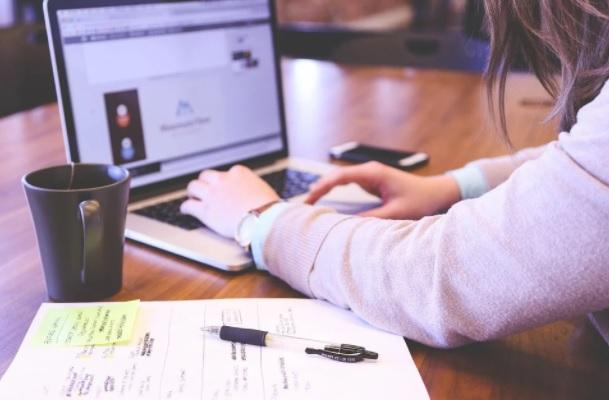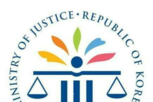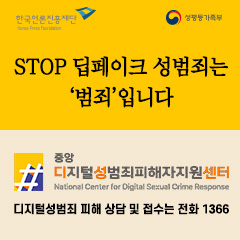
The Ministry of Gender Equality and Family announced at the Multicultural Family Policy Committee held on the 4th that a plan to support multicultural children in school age and an implementation plan for 2022 were deliberated and approved
According to the Ministry of Gender Equality and Family, the total number of elementary, middle, and high schools decreased by 21% while the number of multicultural students increased by 240%. However, teenagers from multicultural families had a low level of desired education by 18% difference in the enrollment rate of higher education institutions across the nation.
The government has come up with support plans to narrow the educational gap for multicultural children and adolescents, which has soared over the past decade, and to provide career guidance.
As a support plan for the educational gap and career guidance, 78 family centers will introduce counseling services on a trial basis from 2022. Depending on the results of the pilot project, the ministry plans to expand and promote it to family centers nationwide by 2025.
In addition, the Ministry of Gender Equality and Family conducts a "bilingual family environment creation project" of the family center for effective bilingual communication method education and talent database operation.
The project produces and distributes school life information materials for multicultural parents, and operates parent education and "Multicultural Parent School".
For efficient participation in school classes, curriculum supplementation programs are also provided, and 17 auxiliary textbooks containing major concepts and vocabulary are produced and distributed as video content.
It will also launch a "learning all" project for children from multicultural families. The "learning all" project will be conducted at 90 family centers starting this year to improve children's basic academic skills, and will support basic learning such as reading, writing, and counting before and after entering elementary school.
The establishment of Korean classes in schools will be expanded for immigrated children and adolescents, and schools without Korean classes will produce content and learning materials to support remote learning and operate "visiting Korean language education" courses.
Rainbow School is operated for immigrated children outside the school. Rainbow School provides Korean language education, basic information on Korean society, and social relations improvement programs to immigrant youth and supports social adaptation and settlement such as transfer admission for formal education.
Supports will also be provided for the stability of psychology and emotions of multicultural youth and the formation of peer relationships. 78 family centers will begin one-on-one customized psychological counseling through youth counselors.
In addition, four elementary and middle schools will be expanded to operate stepping stones courses, which are preparation education before admission to elementary and middle schools.
The Ministry of Gender Equality and Family said it will expand the legal scope for cases where foreign fathers or mothers stay abroad, and children live in Korea with Korean fathers or mothers and are not recognized as multicultural families by law.
Chung Young-ae, Minister of Gender Equality and Family. said "Until now, most of the government's policies on multicultural children and adolescents have focused on easing the burden of raising preschoolers or providing public education for immigrated children.", and added, "We have come up with measures through consultations with policy consumers, experts and related ministries to help multicultural children and adolescents grow into future talents in our society without suffering from parental migration characteristics or social prejudice in the future."
(한국어 번역)
한국다문화뉴스=정영한 기자ㅣ여성가족부는 4일 열린 다문화가족정책위원회에서 학령기 다문화 자녀 포용적 지원방안, 2022년 시행계획안이 심의 및 의결됐다고 밝혔다.
여가부에 따르면 지난 10면 간 초·중·고 전체 학생은 줄어드는데 전체 학생 수는 21% 감소한 반면, 다문화학생의 수는 240% 증가했다. 그러나 다문화가족 청소년은 희망학력 수준이 국민 전체의 고등교육기관 취학률 차이가 18% 차이로 낮은 것으로 집계됐다.
지난 10년 간 급증한 다문화 아동·청소년의 학력격차 해소 및 진로 지도 등을 위해 정부가 지원 방안을 내놨다.
학력격차 및 진로지도를 위한 지원책으로 2022년부터 78개 가족센터에서 상담 서비스를 시범적으로 도입한다. 시범사업 결과에 따라 2025년까지 전국 가족센터로 확대추진을 할 계획이다.
또 여가부는 효과적인 이중언어 소통방법 교육 및 인재 데이터베이스 운영을 위해 가족센터의 ‘이중언어 가족환경조성 사업’을 한다. 사업은 다문화 학부모 대상으로 학교 생활 안내자료를 제작 및 보급, 부모교육과 ‘다문화 부모학교’를 운영한다.
효율적 학교 수업 참여를 위해 교과 보충 프로그램도 제공하며, 주요개념 및 어휘 등을 담은 보조교재 17종을 영상콘텐츠로 제작 및 배포한다.
다문화가족 자녀들을 위한 ‘다배움’사업도 함께 시작한다. 다배움 사업은 자녀의 기초 학력 제고를 위해 올해부터 90개 가족센터 실시하며, 초등학교 입학 전후 읽기, 쓰기, 셈하기 등 기초학습 지원을 지원한다.
중도입국 아동·청소년을 위해 학교 내 한국어학급 설치를 확대하며, 한국어학급이 없는 학교의 경우 원격 학습 지원을 위해 콘텐츠 및 학습자료를 제작하고 ‘찾아가는 한국어 교육’ 과정도 운영한다.
학교 밖에 있는 중도입국 자녀 위해서 레인보우스쿨을 운영한다. 레인보우스쿨은 이주배경청소년에게 한국어 교육, 한국사회 기본 정보, 사회적 관계향상 프로그램 등을 제공하고 정규교육 편입학 등 사회적응 및 정착 지원한다.
다문화 청소년의 심리·정서 안정 및 또래 관계 형성을 위한 지원도 마련된다. 78개 가족센터에서 청소년 상담사를 통한 1대 1 맞춤 심리상담을 시작한다. 또 초·중학교 편·입학 전 사전준기 교육인 징검다리과정을 초·중학교 각각 4개교씩 확대 운영한다.
여가부는 외국인 아버지 또는 어머니가 해외 체류하고, 자녀는 한국인 아버지 또는 어머니와 한국에 거주해 법률상 다문화가족으로 인정받지 못하는 사례에 대해서도 법적 포괄 범위를 넓힌다고 밝혔다.
정영애 여가부 장관은 “이제까지 정부의 다문화 아동·청소년 관련 정책은 대부분 미취학 자녀의 양육부담 완화 혹은 중도입국 자녀의 공교육 진입에 초점을 맞춰왔다”며 “앞으로 다문화 아동·청소년이 부모의 이주배경 특성이나 사회적 편견 등으로 어려움을 겪지 않고 우리사회의 미래 인재로 자라나도록 지원하기 위해 정책 수요자, 전문가 및 관계부처와 협의를 통해 대책을 마련했다”고 전했다.





















